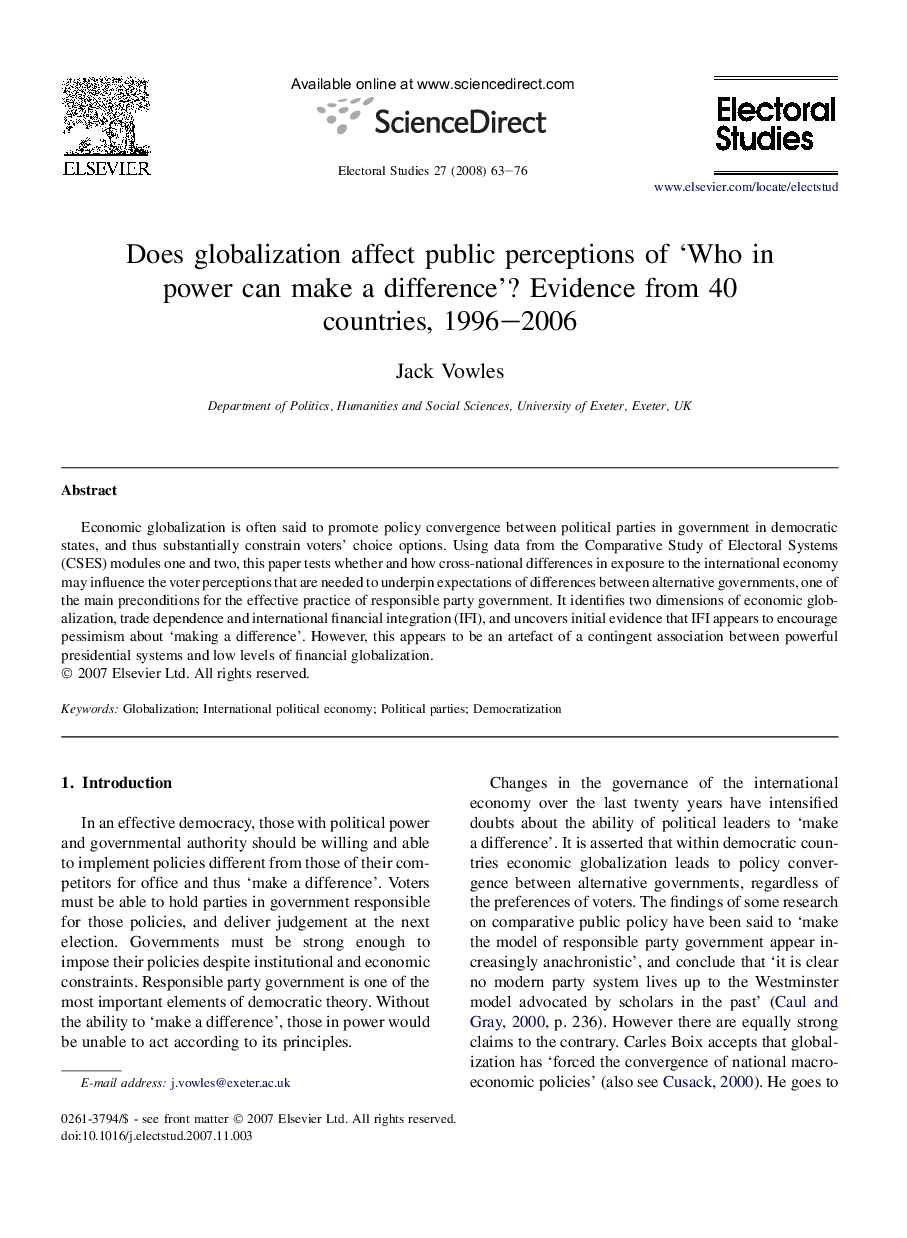| Article ID | Journal | Published Year | Pages | File Type |
|---|---|---|---|---|
| 1052408 | Electoral Studies | 2008 | 14 Pages |
Economic globalization is often said to promote policy convergence between political parties in government in democratic states, and thus substantially constrain voters’ choice options. Using data from the Comparative Study of Electoral Systems (CSES) modules one and two, this paper tests whether and how cross-national differences in exposure to the international economy may influence the voter perceptions that are needed to underpin expectations of differences between alternative governments, one of the main preconditions for the effective practice of responsible party government. It identifies two dimensions of economic globalization, trade dependence and international financial integration (IFI), and uncovers initial evidence that IFI appears to encourage pessimism about ‘making a difference’. However, this appears to be an artefact of a contingent association between powerful presidential systems and low levels of financial globalization.
